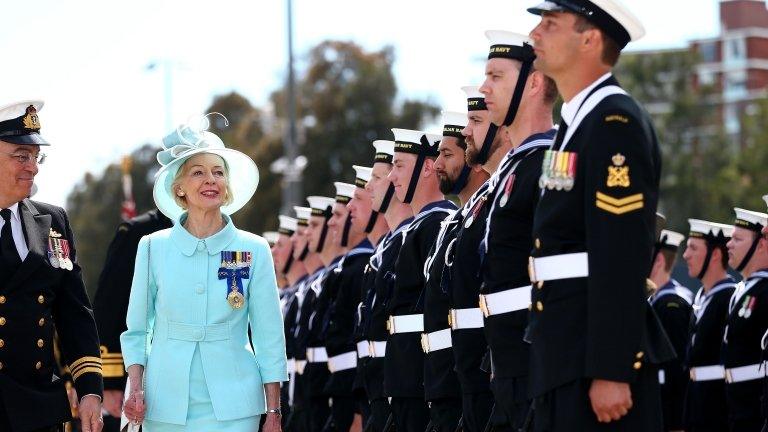Prince Philip recommended for knighthood by Australia
- Published
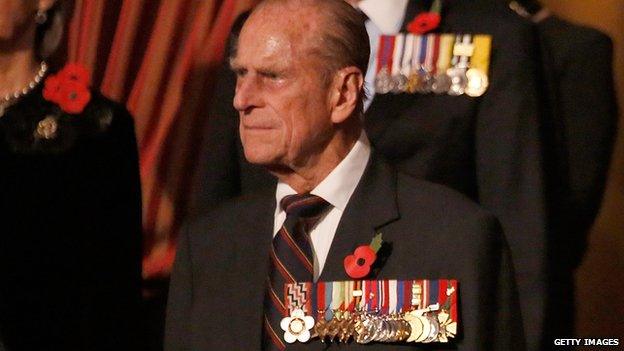
The knighthood is the latest addition to Prince Philip's many titles and honours
Australian PM Tony Abbott has used the country's national day to announce a knighthood for Prince Philip, the Duke of Edinburgh.
Mr Abbott, who reintroduced the honour last year, said the Prince had lived a "long life of service and dedication".
Opposition politicians described the decision as out-of-step with the times.
The leader of the opposition Labor party, Bill Shorten, said it was "anachronistic" to give the top award to a British royal on Australia Day.
He told Fairfax radio he thought the news was a joke at first, adding: "Why would we give him our top Australian honour? He's already got a lot of them."
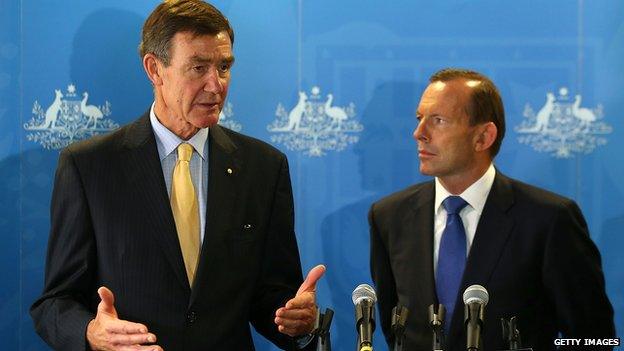
Angus Houston leads the hunt for the missing Malaysian plane MH370
Mr Abbott said Queen Elizabeth II had also approved a knighthood for retired Scottish-born defence force chief Angus Houston.
He was involved in the investigations last year into the missing Malaysian Airlines plane, MH370, as well as the MH17 jet that was brought down over Ukraine. Australians were killed in both incidents and Australia is heading the operation to find MH370.
He said it was "a great honour to be recognised in this way but I'd like people to still call me Angus".
Mr Abbott said that "throughout his life, Sir Angus has put Australia first".
"He immigrated to Australia as an adult, he chose Australia and we are much the better for it."

Australia's honours system
Australia began awarding its own honours in 1975 - the awards eventually replaced the existing British honours system.
Anyone can nominate an Australian citizen for an award for service, excellence or achievement.
The awarding of knighthoods and damehoods was discontinued in 1976 but brought back very briefly in 1986 - Tony Abbott reinstated them in 2014.
Only Queen Elizabeth II can appoint Australian knights and dames, on the recommendation of the prime minister.
Republicans say the honours system is an outdated remnant of colonialism.

'Grab-bag of cliches'
Mr Abbott praised the Prince's work as a campaigner, highlighting the achievements in Australia of his youth charity, the Duke of Edinburgh Award.
"Prince Philip's long life of service and dedication should be honoured by Australia," he said.
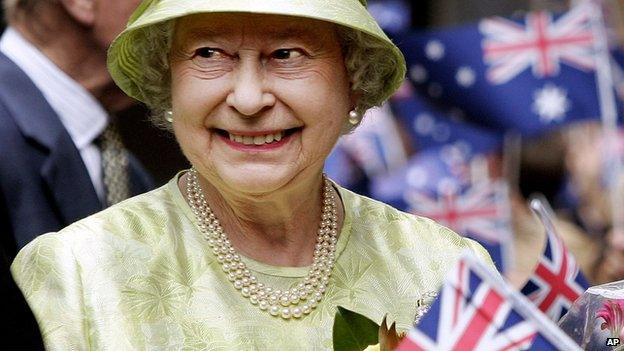
Queen Elizabeth II, Australia's head of state, will sign off her husband's knighthood
Australia is a parliamentary democracy that retains Britain's monarch as its head of state.
Recent polls suggest enthusiasm for making Australia a republic has dwindled since a 1999 referendum, when 45% of voters were in favour.
Most Australians at the time elected to maintain the status quo. The republican movement was split between those who wanted an elected president and those who preferred a parliamentary appointee.

Prince Philip's official title
HRH The Prince Philip, Duke of Edinburgh, Earl of Merioneth and Baron Greenwich, KG (Knight of the Garter), KT (Knight of the Thistle), OM (Order of Merit), GBE (Knight Grand Cross of the Order of the British Empire), AC (Companion of the Order of Australia), QSO (Companion of The Queen's Service Order), PC (Privy Counsellor).
He also holds many foreign orders and decorations, as well as honorary appointments and ranks in the Armed Services.

In a speech on Sunday, Mr Shorten had argued that Australians should rally behind the idea of a republic.
"Let us have the courage to ask ourselves if we measure up to more than just a grab-bag of cliches," he said. "Let us declare that our head of state should be one of us."
Opposition politicians have also criticised Mr Abbott's decision and its timing.
"As we try to reflect upon our nation... one of Australia's highest honours goes to someone who's not part of our community really," the former premier of Western Australia, Geoff Gallop, told the Australian Broadcasting Corporation (ABC).
"In effect this is the eccentricity of Tony Abbott's views on our constitution coming through," he was quoted as saying. "It certainly doesn't reflect the view of the Australian people through a meritocratic process."
Greens leader Christine Milne told Fairfax Media: "There are plenty of wonderful people right here who are worthy of recognition."
"But this is Tony Abbott - stuck on what Australia was and failing to notice all that we are, or have any vision or pathway towards all that we can be."
- Published25 March 2014
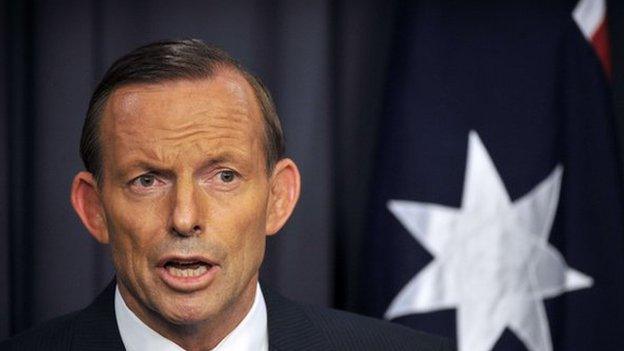
- Published9 June 2011
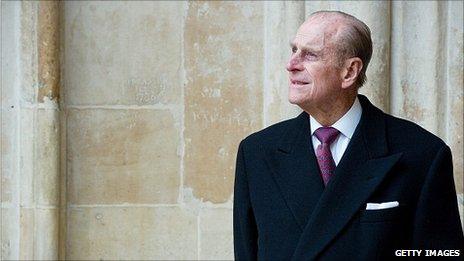
- Published23 November 2013
